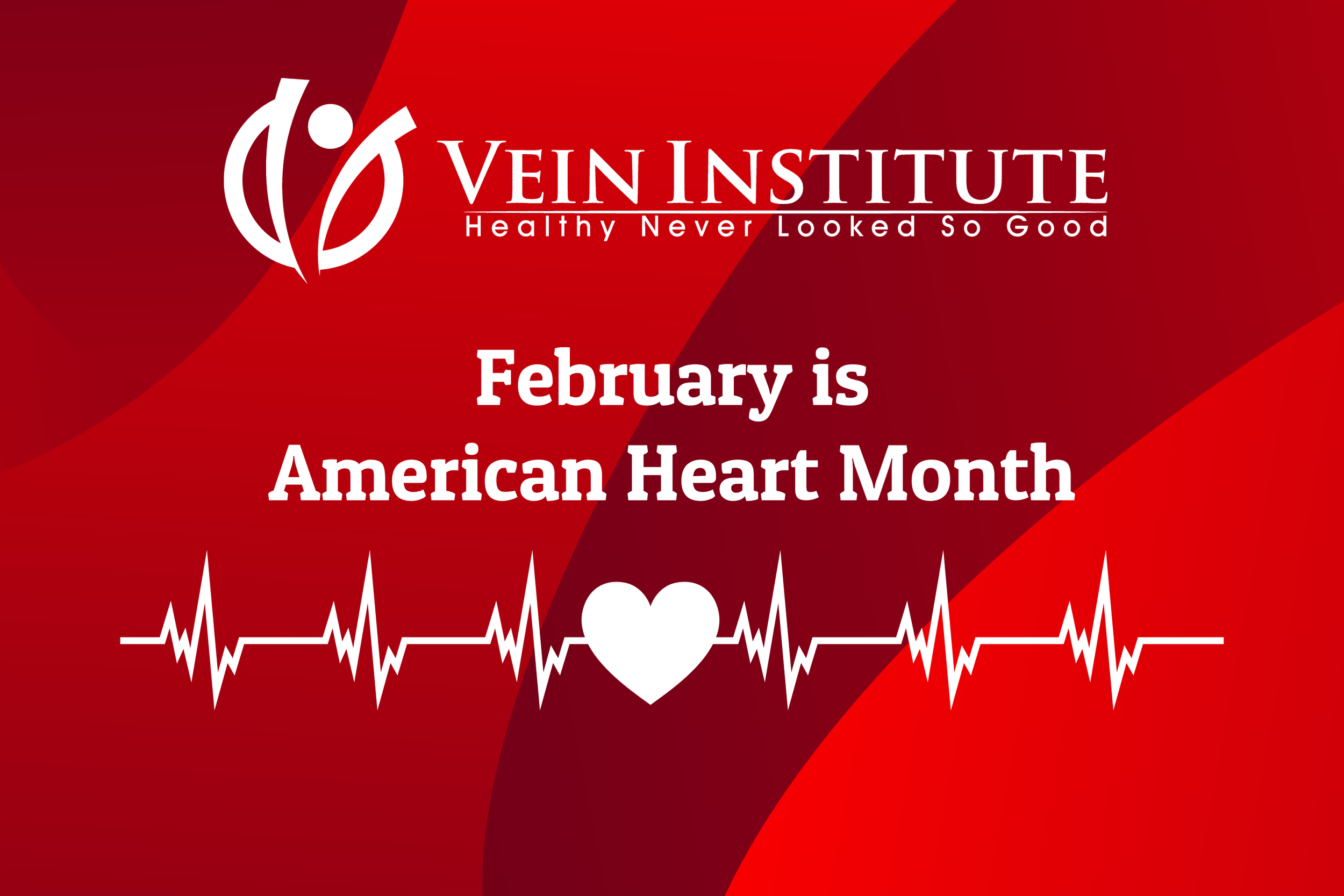American Heart Awareness Month
February is American Heart Month 一 and not just because of Valentine’s Day. American Heart Month is a time to reflect on your heart health and focus more on your cardiovascular health. Heart disease is the leading cause of death in America, but thankfully, there are many things you can do to support your heart.
And while this month generally focuses on heart attack or stroke prevention, our team of experienced providers at Vein Institute is here to share several self-care tips for keeping your entire cardiovascular system 一 including all of the veins in your legs 一 as healthy as possible.
Self-care tips that promote a healthy vascular system
Self-care strategies that support heart health aren’t just for the sake of your heart. The following heart-healthy self-care tips benefit your entire body and mind.
1. Exercise at least 30 minutes a day
There is a seemingly endless list of benefits when it comes to exercise. Exercise:
Promotes good cardiovascular health
Reduces your risk of heart attack, stroke, and coronary artery disease
Improves your mood
Helps you sleep better at night
Boosts your immune system
Reduces your risk of future varicose veins
Exercise can also help you manage the symptoms of restless leg syndrome. That’s because researchers have found a link between restless leg syndrome and heart disease. In other words, exercise can help reduce your risk of both of these conditions. But how much exercise do you need? The American Heart Association recommends that you exercise 150 minutes each week at a moderate level. You can also exercise vigorously 75 minutes each week for the same heart benefits.
2. Monitor your sodium intake
Monitoring your salt intake isn’t a glamorous self-care tip, but it is an excellent way to take care of yourself. If you already have high blood pressure, you know that too much sodium can contribute to high blood pressure. Keep these tips in mind when you’re watching your sodium intake:
Try salt-free spices or seasonings, such as dried herbs, fresh herbs, or spices without added salt
Make soup instead of eating canned soup, which can have excess sodium
Purchase low-sodium broth
Always taste your food before salting it
Not only can reducing sodium intake have a positive impact on your blood pressure, but it also helps alleviate excess swelling in your legs or feet related to too much salt.
3. Eat heart-friendly foods
Treat yourself to new recipes and flavors! While you might have your share of heart-shaped chocolates this month, it’s also important to focus on heart-friendly foods. This includes whole grains, lean protein, foods rich in antioxidants, foods rich in omega 3 fatty acids, and fresh produce. Keep it fun and explore new recipes, new flavors, and even new ingredients. Heart-friendly food doesn’t have to be boring!
4. Manage stress
Too much stress causes your body to release cortisol (the stress hormone), and unfortunately, cortisol wreaks havoc on your heart. The good news is that managing your stress is a wonderful way to take care of your heart (and your body!) A few ideas to reduce stress include:
Exercising
Meditating
Spending time on a hobby each day (even 20 minutes spent on an activity you enjoy is good for your mental wellbeing)
Deep breathing
Relax in a warm bath and Epsom salt
5. Get a good night of sleep
Sleep isn’t a luxury. It’s a necessity. A chronic lack of sleep can take a toll on your heart health, increase your risk of diabetes, high blood pressure, and obesity. This month make an effort to practice good sleep hygiene, such as:
Avoiding blue lights (TV or phone screens) for 1-2 hours before bed
Sleeping in a dark room
Sleeping in a cool room (a few degrees cooler than room temperature)
Going to bed at the same time every night
Planning for 7-9 hours of sleep each night
Don’t let restless leg syndrome or the achiness of varicose veins keep you from getting the sleep you need. Our team is ready to help you alleviate these symptoms so you can sleep better at night.
6. Schedule your vein care appointments
Self-care is more than just spa days and relaxing days reading at the beach (although those count too!) But self-care is so much more. Self-care includes anything that supports your overall physical and mental wellness, and that includes scheduling appointments when you spot the signs of a vascular issue. Untreated vein disease can increase your risk of serious cardiac events such as heart attacks, blood clots, and strokes. If you spot the signs of vein disease, schedule an appointment here at Vein Institute.
Honor American Heart Awareness Month and Adopt These Self-Care Strategies Today
It’s not too late to adopt new habits, whether that’s adding more exercise into your day, making dietary modifications, or taking care of vein issues. Need to schedule an appointment? Call the nearest Vein Institute office or simply request an appointment online and put your vascular health first.
“Dr Afshar and team are amazing. I have had multiple procedures done, for both medical and aesthetic purposes, and have had nothing but excellent experiences. The whole team, from the front desk to nurses and doctors, is extremely friendly and knowledgeable. I met with 2 other doctors prior to going to Vein Institute and am very happy with my decision to work with Dr Afshar and team. Very highly recommend this practice!” - Danielle C.







